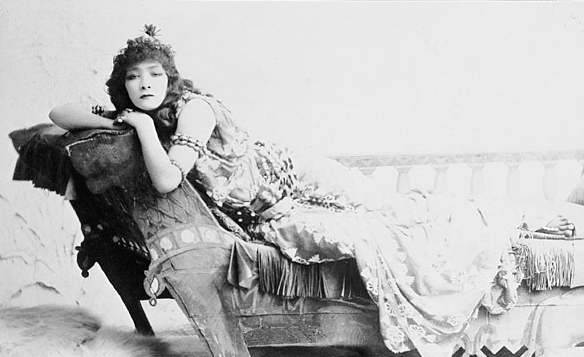<![CDATA[The 30th August marks 2044 years since the death of Cleopatra. Although there is some variation in accounts of her death, it is generally believed that she took her own life. Her armies had been defeated by Octavian, who would eventually become the first emperor of Rome. Her lover Mark Antony was dead, and it is believed that she committed suicide to avoid being paraded and humiliated as a symbol of Egypt's impending defeat. Cleopatra's life has been capturing imaginations from the moment she was crowned queen of Egypt in 51 BC. She was the last active Pharaoh, symbolising the closing of an epoch in the country's history. Her colourful life has inspired a host of writers and artists since, not least William Shakespeare, who dramatised her life in one of his most famous plays, 'Antony and Cleopatra'. A member of a Macedonian dynasty that had ruled Egypt since the death of Alexander the Great, Cleopatra came to the throne alongside her brother Ptolemy XIII after the death of their father Ptolemy XII. The two siblings ruled Egypt together under the formal title of husband and wife, something which was common practice at the time. Although from a dynasty that contained no Egyptian blood, Cleopatra had ingratiated herself to Egyptian culture by being the only member of her family to have learnt to speak Egyptian. As a sign of her attempts to build support from the Egyptian people, she was declared the daughter of Re, the Egyptian Sun God. This reflects the extent to which she understood the traditions and faiths of the people she ruled, something which greatly contributed to her popularity. In 48 BC the relationship between Cleopatra and Ptolemy XII soured and civil war started in Egypt. As Cleopatra prepared to attack her brother with the army she had assembled, Julius Caesar arrived in Egypt. Caesar had come to Egypt in search of his enemy Pompey the Great, who had fled to the country after defeat in the Roman Civil War. Finding Pompey had been killed, Caesar decided to remain and restore order to Egypt, a kingdom which Rome had been taking an increasingly active role in over the preceding century. Cleopatra supposedly seduced Caesar, claimed to bear his son and persuaded him to intervene in the civil war. Ptolemy XIII was quickly defeated by Caesar's forces, and Cleopatra was restored as ruler of Egypt alongside another of her brothers, Ptolemy XIII. An affair supposedly continued between Julius Caesar and Cleopatra, with the Egyptian Pharaoh believed to have visited him in Rome. Years of intrigue followed, in both Rome and Egypt. Caesar was murdered in Rome and the empire descended into another civil war which ultimately ended with the creation of a ruling triumvirate of Octavian, Caesar's great nephew, Mark Antony, a powerful Roman general, and Lepidus, a Roman statesman. Meanwhile in Egypt, Ptolemy XVI died, possibly poisoned by Cleopatra, and she made her son co-ruler of Egypt alongside herself. Cleopatra would go on to seduce Antony, after being called to Tarsus to answer charges of aiding his enemies. Antony fathered twins with Cleopatra, despite being married to Octavia's sister. Over the following years tensions started to build between Octavian and Antony. Octavian's propagandists created stories of Antony trying to deliver the Roman Empire into foreign hands - Cleopatra's. In 31 BC Octavian declared war on Cleopatra, and therefore Antony, and so begun the series of events that would lead to Cleopatra's death. Details surrounding the death in 30 BC vary, with reliable sources being muddled with myth and legend. The standard story is that as defeat loomed, Antony and Cleopatra killed themselves. The legend is that Cleopatra killed herself with the poison of an asp, something that would have been a painful death. Historians have since suggested it may have been a cobra bite that actually killed Cleopatra. Cobra venom would have caused a much less painful death. In 2010 Christoph Schaefer from Trier University told CNN that he thought Cleopatra had actually died from drinking a mixture of poisons. Cleopatra's story is one that continues to entrance people. She stands as one of the most fascinating figures of the Ancient World and a rare example of a woman publicly wielding considerable power and influence in such a male dominated era. The story of her life, from seducing emperors to assassinations, civil wars to the tragic romance with Antony, flirts between history and legend. At times the story can seem fantastical, and there is no doubt that it has been distorted through time. Nevertheless, Cleopatra stands as a unique individual who left a massive mark on the ancient world.]]>
The Anniversary of Cleopatra's Death
